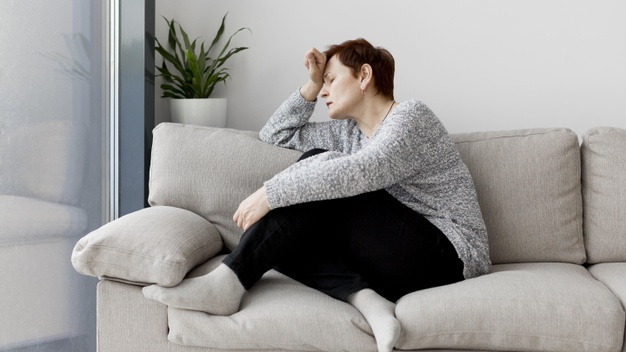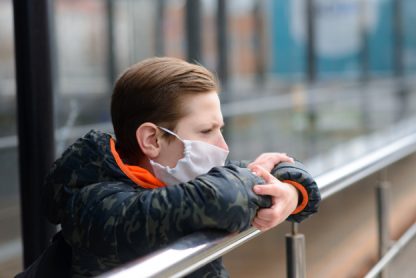Anxiety is something that we all experience at different points in our lives. In fact, it is quite normal to be anxious about stressful life events like relationship problems, changing jobs or financial troubles.
Unfortunately, if some of these anxieties become larger than problems, affecting our daily lives, then we should be careful as they might be signs of anxiety disorders getting triggered.
With proper help from medical professionals, these disorders can be managed. However, recognizing their hidden symptoms is the primary step.
Here are eight common symptoms of anxiety disorder that you should look out for.
1. Restlessness
Being restless is the most common symptom of anxiety. In a study conducted on adolescents with anxiety disorder, about 74% reported restlessness as a key symptom[1]. Though restlessness alone cannot help diagnose an anxiety disorder, if it is occurring frequently for more than six months, then it is a sign of anxiety.
People with fatigue have more probability of having a panic attack.
Depression and Anxiety (2012)
2. Fatigue
Another common sign of generalized anxiety disorder is fatigue. People with fatigue have more probability of having a panic attack[2]. In others, fatigue is seen associated with other general symptoms of anxiety disorder such as insomnia, muscle tension or hormonal imbalance.
3. Trouble Concentrating
The lack of concentration is one of the key problems for people with anxiety disorders. According to a study, about 90% of people with generalized anxiety disorder have trouble concentrating [3]. Anxiety can interrupt the working memory which is responsible for holding short-term information. This will, in turn, dramatically decrease in the performances of such people.
4. Tense Muscles
If you are having tense muscles for most days of the week, there is a wide chance that you might be suffering from an anxiety disorder. On the other side, there are situations where muscle tenseness itself triggers anxiety.
5. Agitation
Anxiety makes a part of our sympathetic nervous system to go into overdrive. This will trigger many physical effects throughout the body. Our pulse starts to race, palms sweat, mouth dries and hands start to shake. Moreover, it will make your brain think that you are in danger and increases your heart rate in order to pump more blood to your muscles than your digestive system[4].
22% of all adult Americans experience panic attacks at some point in their life
Archives of General Psychiatry (2007)
6. Over Worrying
A hallmark of generalized anxiety disorder is worrying too much about daily matters. This makes it difficult to concentrate and accomplish daily tasks. If you are worrying most days for the past six months without any control, then there is a chance that you at the highest risk[5].
7. Panic Attacks
Panic attacks are an intense, overwhelming sensation of fear that is typically accompanied by sweating, rapid heartbeat, shaking, chest tightness, shortness of breath, nausea, and fear of dying or losing control[6]. It is estimated that about 22% of all adult Americans experience panic attacks at some point in their life[7].
8. Excessive Irritability
A recent study conducted on 6,000 adults reveals that more than 90% of them who are reported with a generalized anxiety disorder feel highly irritated- especially when their anxiety is at its peak [8]. This can be seen comparatively higher in young and middle-aged adults.









